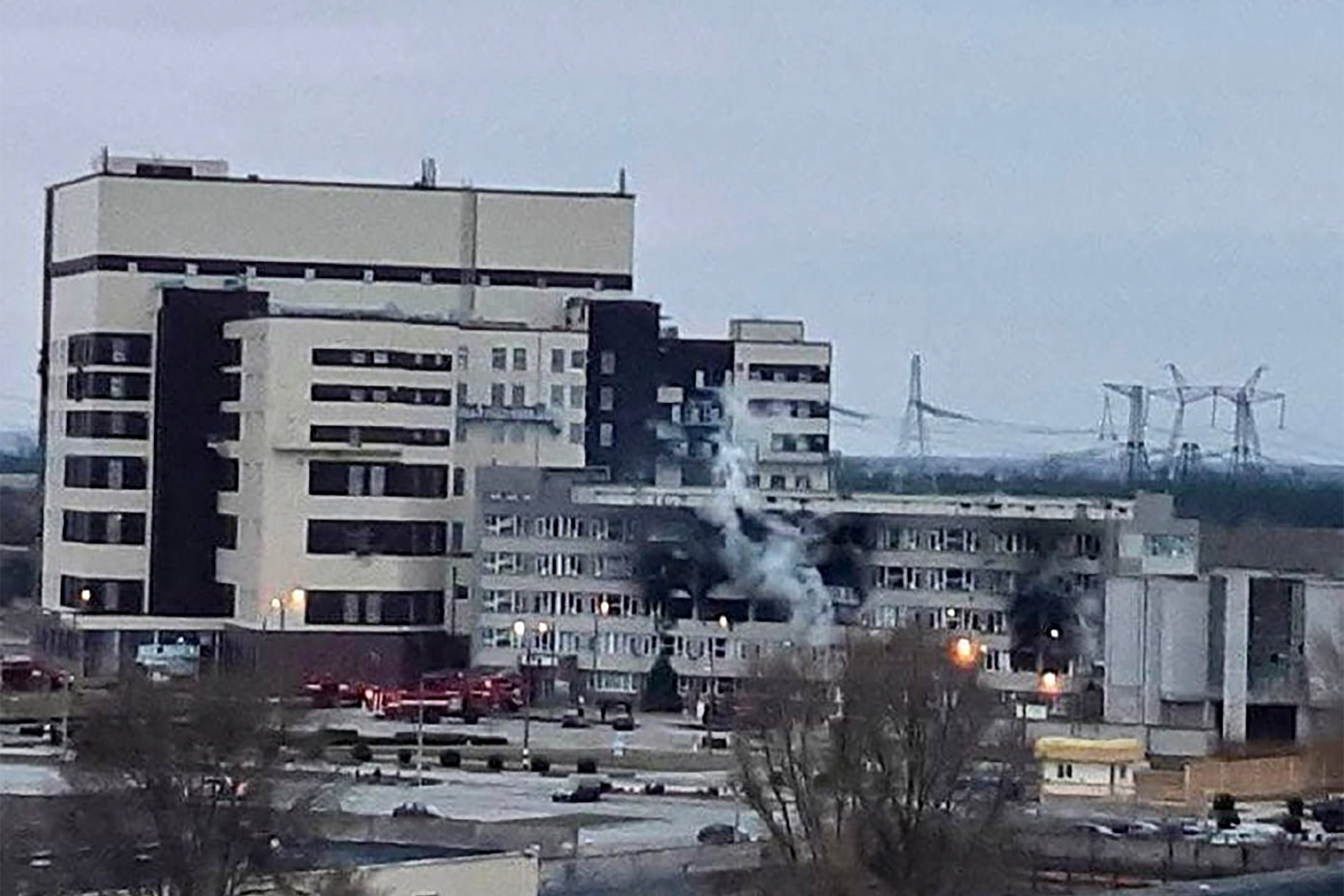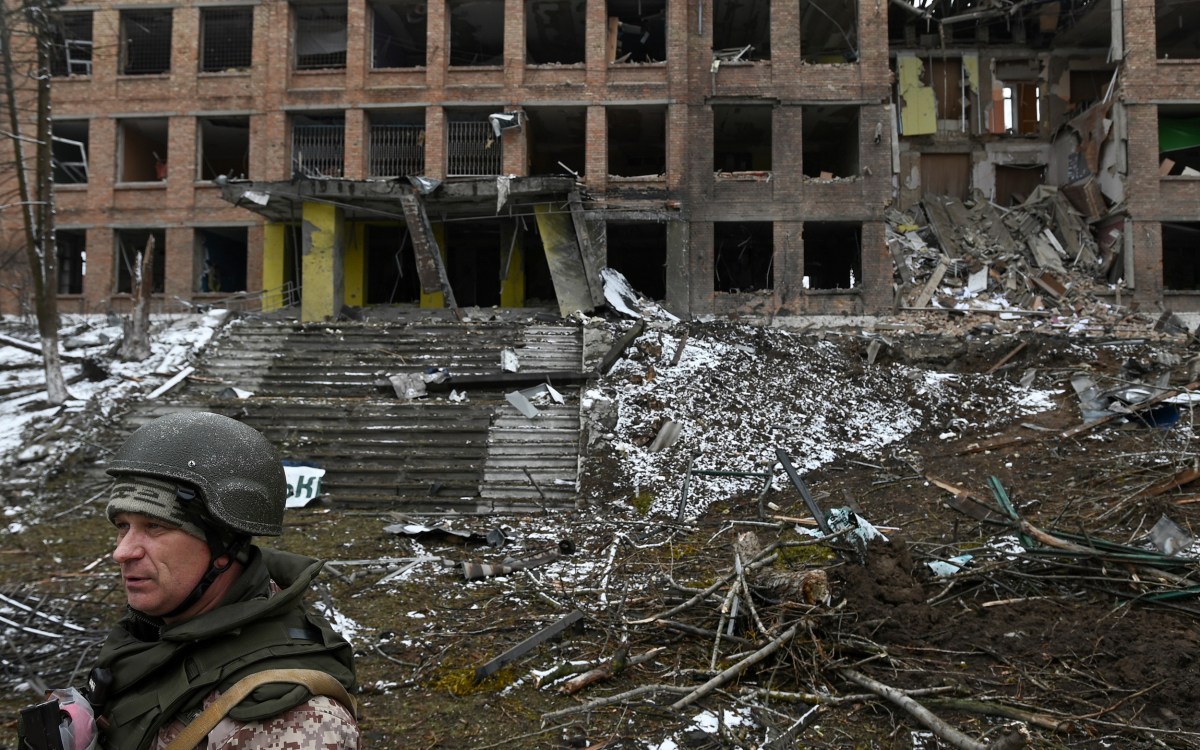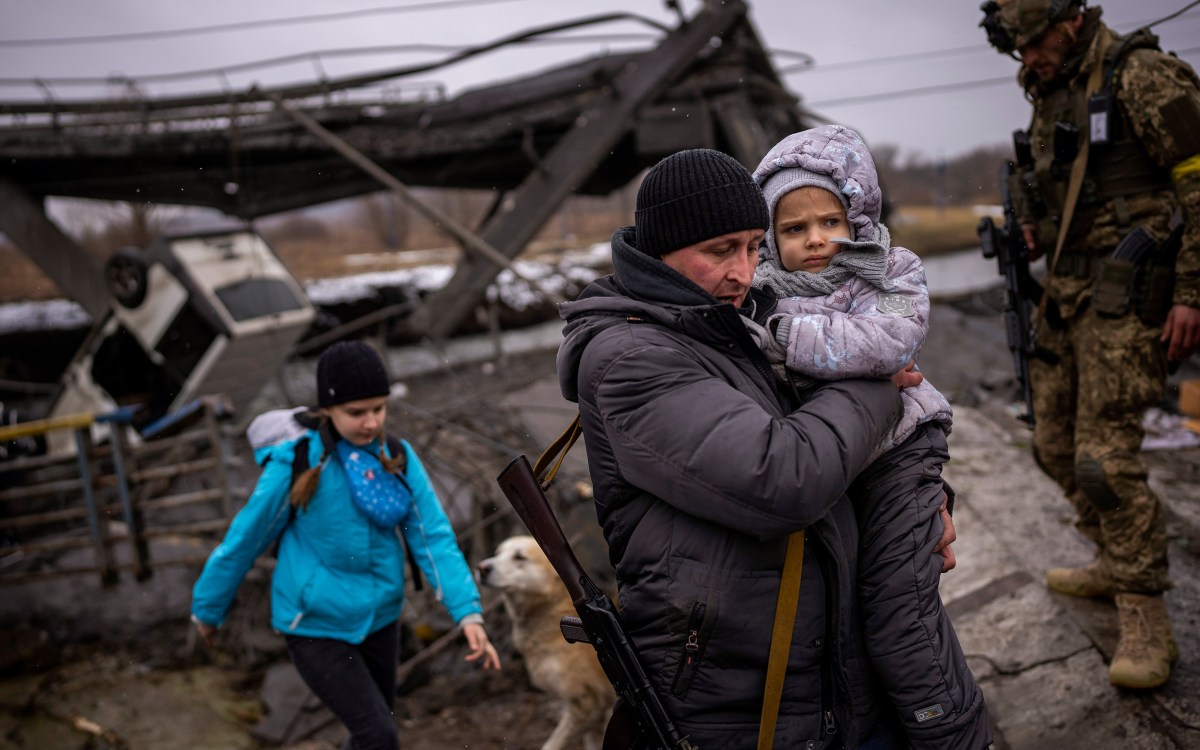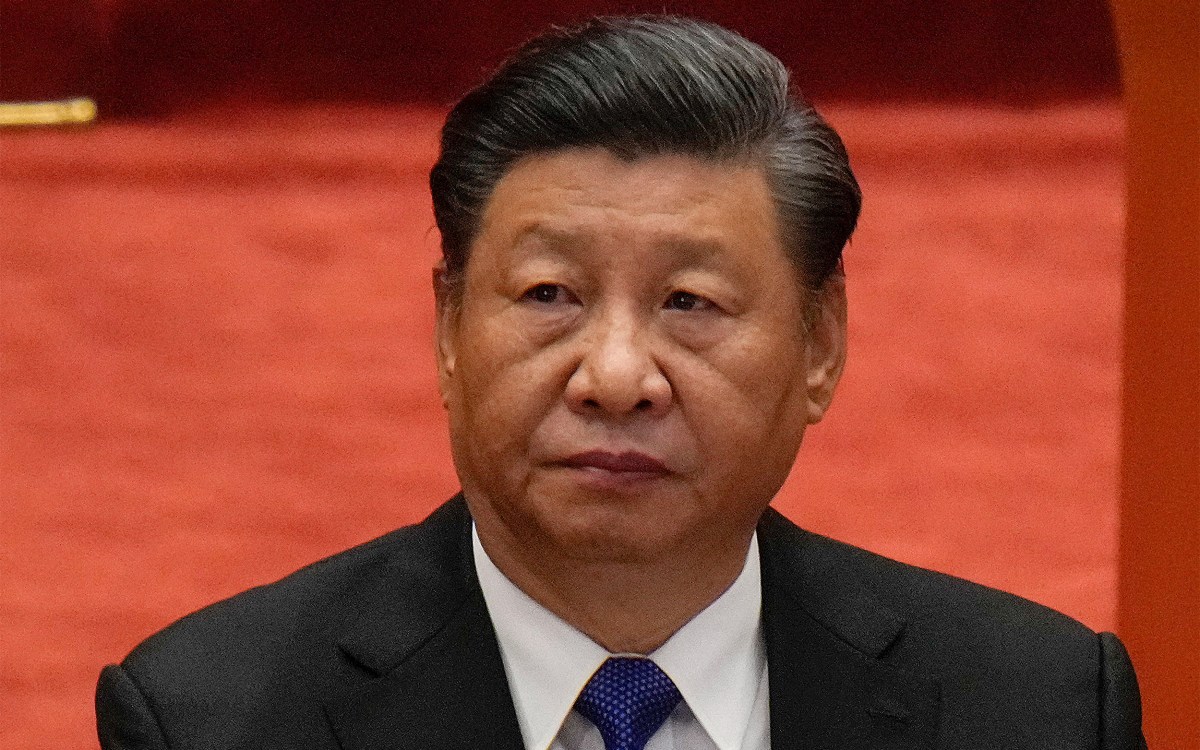
Controlling Ukraine’s nuclear power plants should have been anticipated, says nuclear counterterrorism expert Rolf Mowatt-Larssen. On March 4, the Zaporizhzhia nuclear power plant caught fire during an attack by Russian forces.
Press Service of National Nuclear Energy Generation Company Energoatom via AP
Russian attack, takeover of Ukraine plant ramps up nuclear threat
Expert outlines what Western intelligence agencies are looking for in Putin’s next moves
Russia’s attack on and takeover of a nuclear power plant in southeastern Ukraine on Friday has heightened concerns of a nuclear catastrophe in the region. Beyond fears of unintended leaks in possible future attacks on Ukraine’s three remaining nuclear plants, menacing statements by Russian President Vladimir Putin and Sergey Lavrov, minister of foreign affairs, have spurred worries that Russia may seek to turn captured reactors into “dirty bombs.”
To understand how U.S. and Western intelligence agencies view Russia’s actions, the Gazette spoke with Rolf Mowatt-Larssen, a senior fellow at Harvard Kennedy School’s Belfer Center for Science and International Affairs who served as director of intelligence and counterintelligence at the Department of Energy for three years after leading the government’s global nuclear counterterrorism efforts during a distinguished 23-year career at the CIA. The interview has been edited for clarity and length.
Q&A
Rolf Mowatt-Larssen
GAZETTE: How are Western intelligence services looking at this incident?
MOWATT-LARSSEN: I don’t think it’s surprising that part of the Russian invasion plans include seizing and controlling all of Ukraine’s nuclear assets. This is a very predictable move on their part. It was clearly a big mistake on the Russian side to fire at the facility. I don’t know if that’s because they received any fire — the situation on the ground is very murky. And that’s the great danger the fog of war introduces.
GAZETTE: Does the seizure of the Zaporizhzhia nuclear power plant suggest that Putin may use Ukraine’s nuclear plants as tactical weapons?
MOWATT-LARSSEN: It’s clear that the Russians want to control all these sites. They’re going to seize all strategic assets — infrastructure, power — in Ukraine as the invading army takes control. Everyone should have expected that they would want to control these sites.
GAZETTE: Does the fact that the attack came so early in the conflict change expectations of Western intelligence services for what may happen next?
MOWATT-LARSSEN: I don’t think it changes anything, but it came as a big surprise, certainly to me and I think to others. It seems wildly inappropriate at this point in the war. I think it even caught many people on the Russian side, maybe even in the defense side, unprepared, unguarded. That was a very dangerous escalation right at the start of this.
Before Putin said anything or put any forces on alert, we understood that there was a chance that this could end up involving nuclear weapons. That’s just the reality of having the weapons, and we’d be naive to think otherwise. I think NATO and U.S. actions reflect that: the unwillingness, for example, to create a no-fly zone over Ukraine, our decision that we can’t directly intervene militarily or we risk a war with Russia. Those types of decisions reflect our concern that Putin or the Russians may be serious about using nuclear weapons. So I don’t think in that sense that it caught everybody by shock, because, of course, we have to consider the possibility that if everything goes wrong, we may end up with some sort of a nuclear confrontation.
GAZETTE: What sort of signs might Western intelligence agencies be looking for to gain insight into what Putin is planning?
MOWATT-LARSSEN: The most important indicators would be anything that suggests these nuclear power facilities would become part of the war, that there would be a fight over them. That would be the biggest concern because then we could have a Chernobyl-type accident. The second thing we would want to know is that they continue to operate safely, that there is no intention, or that the West seeks assurances from Russian officials of what their intentions are, and that these facilities are still being handled under international norms that guide how nuclear power plants are managed.
It’s disturbing, the reporting that there were fires during the attack, that there were people operating the facilities at gunpoint. That’s a concern. Any indications at all, whether it’s announcements that are made or activity on the ground, that would suggest the Russians do have some nefarious intentions with the plants, which I doubt. Western intelligence and Western nuclear regulators and others who know a lot about nuclear safety and security will be following this very, very closely. In the last few days, many nuclear experts have been appearing on TV. And as I look at those interviews, the most concerning aspect, so far, is just the lack of specific information about what is going on.
GAZETTE: Given the recklessness of these actions, many wonder if Putin has become unstable. U.S. intelligence reports say he is angry about how poorly things are going, and top Russia analyst Fiona Hill, A.M. ’91, Ph.D. ’98, said in Politico last week that Putin has shown “visceral emotion” in recent remarks about Ukraine. How does he look to you?
MOWATT-LARSSEN: I agree with Fiona, who’s an expert on Russia and Putin. But at the same time, I can say that he’s making the same decisions, in the same patterns of behavior in speech and action that he’s always carried out things. I don’t see a departure. I don’t see what I would call a change in whatever his state of mind is. So I don’t know that the question of “sane or insane” is the way I would look at the situation. Instead, I would look at it as: Have we seen any departures from his decision-making over the years now in Ukraine? Up to now I would say no. The nuclear alert is a warning that he may not be as predictable as we have always considered him. But he’s always been a ruthless, brutal aggressor. The pattern is very clear in this regard.
GAZETTE: Might Putin reach for nuclear weapons if he’s losing badly or as retaliation for Russia becoming a global pariah?
MOWATT-LARSSEN: I don’t want to speculate on a nuclear war, but he’s never backed down so far in over 20 years of rule, and I don’t expect him to back down now. If he feels that he’s losing the war, and frankly, I don’t see how he can win it, then that introduces unpredictability in his decision-making that we’ve not seen over his entire rule. He’s never taken on a challenge this huge, this large, and I don’t think he necessarily understands the scale of what he is trying to accomplish. And if he miscalculates, because this is just too big to absorb as a challenge, then we may see some things from Vladimir Putin we haven’t seen in over two decades.
GAZETTE: How does this end for Putin? Is there anyone in Russia who can stop him?
MOWATT-LARSSEN: It’s too early to say how it ends. One thing we can already say, though: The world has changed, and we’re not going back. Russia and Vladimir Putin are not going to go back to what they were before he invaded Ukraine. What that means in terms of how Russia navigates itself out of this situation at some point — it could be months or years till that happens — that’s almost too much to speculate about. It’s never been a political rival of Putin that would have been the threat to his rule. It would be somebody internally, two or three of the most powerful men in Russia who decided that enough is enough, and they’re going to cut their losses. That would be the biggest threat to him. But I see no indication that that’s a possibility right now. I think he and his closest advisers are totally on the same page.
GAZETTE: Who are these advisers?
MOWATT-LARSSEN: I believe the three most powerful men in Russia who have controlled the Russian security service, the FSB: Vladimir Putin, who was in charge in the late ’90s and was replaced by Nikolai Patrushev, who then turned over the FSB to the current chief, Alexander Bortnikov, in 2008. Three men have run the most powerful institution in Russia for almost 25 years. If something were to change, it would have to take place within that small circle. I don’t think oligarchs or political figures have any influence over the stability of the government in Russia.
GAZETTE: If citizen protests in the streets of Russia grew significantly, could they influence what Putin does?
MOWATT-LARSSEN: Well, yes. The FSB used to be called the KGB, which was in charge of ensuring that domestic dissidents didn’t become a threat to the regime. So, if people were to have a Russian version of a color revolution, it’s up to the FSB to put that down. And so, that’s where the stability of the country lies in the event that Russian people were fed up at some point. That would be a threat to Vladimir Putin’s regime as well, certainly.







